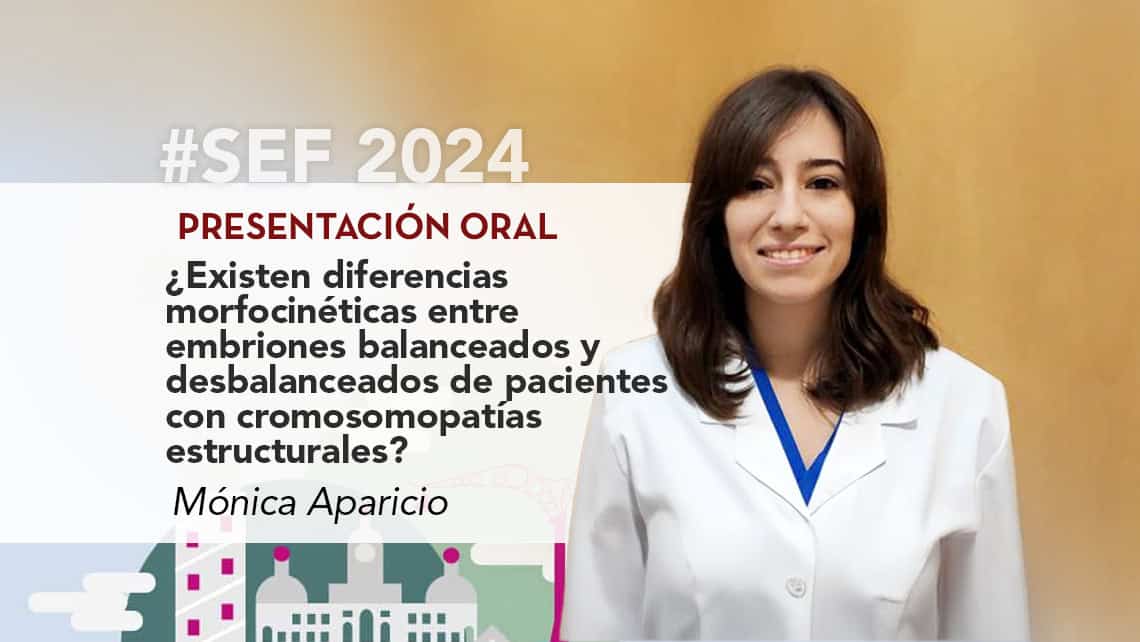Instituto Bernabeu presents at the SEF congress a study on the embryo development from patients with chromosomal abnormalities
May, 3rd 2024

Embryologist Mónica Aparicio [AAL1] from Instituto Bernabeu will attend this year’s Spanish Fertility Society (SEF in Spanish) congress to give a presentation on research that seeks to better understand the development of embryos from patients with structural chromosomal abnormalities. This study sheds light on the potential of using time-lapse as a tool to optimise embryo selection in these cases.
This retrospective, multicentre study analyses the morphokinetic development of 133 embryos from couples with structural chromosomopathies, comparing balanced and unbalanced embryos after Structural Rearrangement PGT (SR-PGT). The results of the study suggest that unbalanced embryos tend to form expanded blastocysts later than balanced embryos. In addition, significant differences in morula formation time were observed, being longer in unbalanced embryos.
“These preliminary findings point to morula formation time as a possible relevant morphokinetic marker in PGT-SR cycles,” explains Mónica Aparicio. “Although studies with larger numbers of embryos are required to confirm these observations, the research paves the way for embryo selection in patients with structural chromosomopathies”.
The study implications could be significant for patients seeking pregnancy through assisted reproduction. “By deepening the morphokinetic study of embryos in these cases, we can obtain valuable information complementing the diagnosis of PGT-SR and guides the selection of the embryos with the greatest potential for development,” Aparicio emphasises.
“With a more consolidated statistical study, morphokinetic evaluation could become a useful tool to optimise embryo selection in patients with structural chromosomopathies, increasing the chances of achieving a healthy pregnancy,” concludes the Instituto Bernabeu embryologist.
